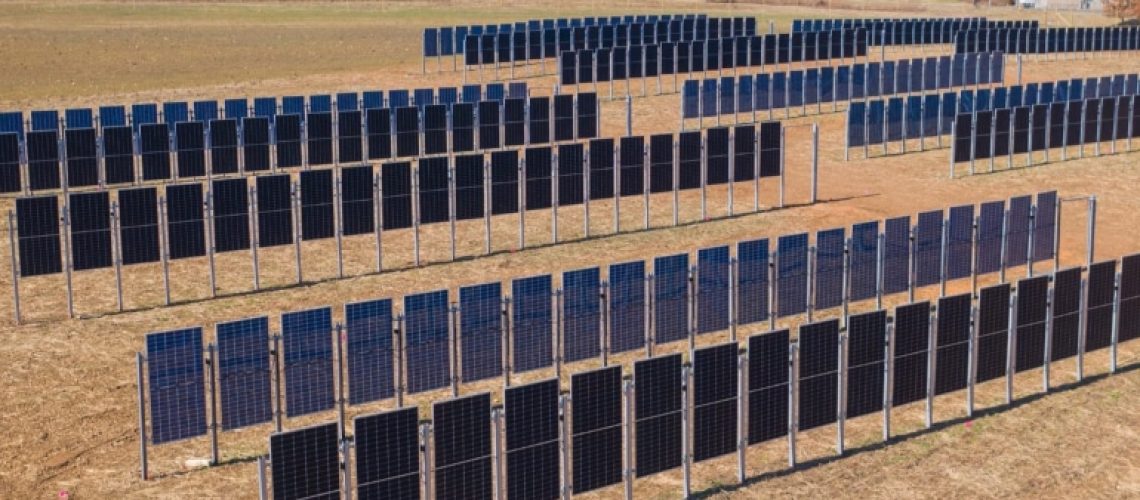Rutgers University has selected vertical solar system Sunzaun for an agrivoltaics project at its farm on Cook campus.
The farm at Rutgers University-New Brunswick operates as a hybrid of production farm, research facility and teaching operation in support of the Rutgers School of Environmental and Biological Sciences and Rutgers New Jersey Agricultural Experiment Station related activities. At the farm, students, faculty and staff care for a variety of animals, including sheep, goats and cattle.
Agrivoltaics refers to the use of land for both agriculture and solar energy generation. Placement of an agrivoltaics system in this environment creates a unique opportunity for researching livestock interaction with solar installations. Results from the project will contribute to the Dual-Use Solar Energy Pilot Program that is administered by the New Jersey Board of Public Utilities (NJBPU).
The project was constructed by solar EPC contractor Advanced Solar Products using Sunzaun’s vertical racking system. “It is one of the first agrivoltaics systems utilizing vertical racking in the northeastern U.S.,” said Helge Biernath, CEO and president of Sunstall, the company behind the Sunzaun product.
The aim of the project is to investigate the potential benefits of agrivoltaics in a densely populated state with an important agricultural and livestock sector, a large energy demand and limited space to construct renewable energy systems.
Rutgers selected the Sunzaun vertical solar racking system for its farm facility to minimize obstructions for equipment used to farm the property. The system has a total output capacity of 170 kWDC and consists of 18 rows of 21 ZnShine 450-W bifacial panels each mounted in rows running North to South. Peak electricity production occurs during the early morning and late afternoon hours when sunlight is received from the East and the West. Two different row spacings and panel mounting heights were used as part of the experimental design.
Since the agrivoltaics system will be used for experiments involving forage production and grazing beef cattle, the design included animal shelters (mostly to create a shade area), animal drinking facilities and a handling chute for safely managing large animals.
Researchers will plant a forage crop in April and will start grazing beef cattle in September. The objective is to study the impacts of the agrivoltaics system on forage production and animal grazing, including any behavioral changes the animals may exhibit when grazing among the panels.
This project will support the Dual-Use Solar Energy Pilot Program that is administered by the NJBPU. The program, spanning a minimum of three years, has a goal to explore the feasibility and benefits of agrivoltaics. It is a collaborative effort with the New Jersey Department of Agriculture and the Rutgers Agrivoltaics Program.
News item from Sunzaun



